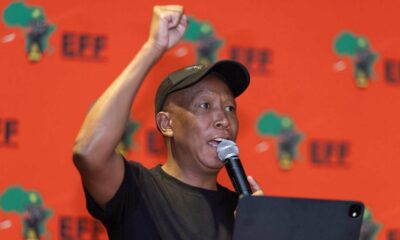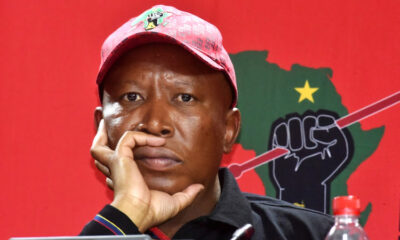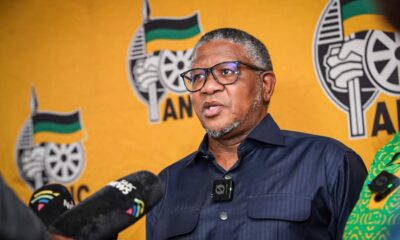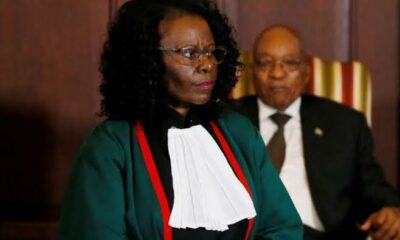News
Julius Malema Slams Fuel Levy Hike as “Assault on the Poor”, EFF Heads to Court
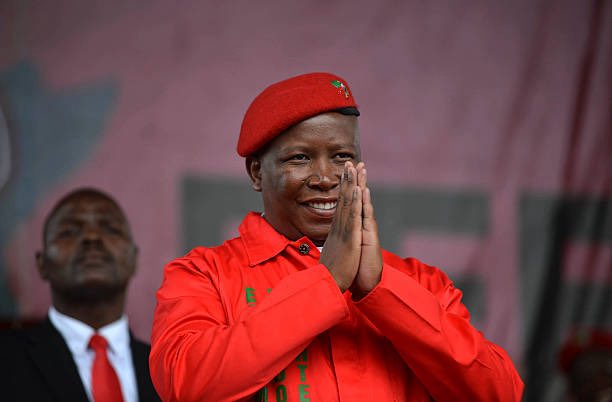
EFF prepares for legal showdown as fight against fuel price hike heats up
South Africans barely had time to adjust to the latest petrol price shock before EFF leader Julius Malema took to the stage with fighting words and legal documents in hand.
“This is not over,” Malema declared during a recent briefing, following the Western Cape High Court’s dismissal of the EFF’s urgent attempt to halt the fuel levy increase. The Economic Freedom Fighters are now taking their battle to the next phase and possibly all the way to the Constitutional Court.
What’s behind the outrage?
On 5 June, South Africans were hit with yet another hike: 15 cents per litre more for petrol and 16 cents for diesel. At face value, it may seem like a minor bump — but for a country already groaning under rising food costs, erratic electricity prices, and high unemployment, it feels like insult added to injury.
The EFF argues that the finance minister overstepped his constitutional authority when he announced the fuel levy hike in May. According to Malema, the increase was implemented without proper parliamentary oversight, which the party believes makes it both undemocratic and illegal.
“We lost the urgency application,” Malema admitted, referring to the court’s dismissal of Part A of their case, “but now we go into the merits — Part B. We’re still confident we’ll win this battle in court.”
The legal case: what’s next?
While Part A of the case sought to stop the hike immediately, Part B will test the constitutional legality of the finance minister’s decision. Malema emphasised that if necessary, the EFF is prepared to appeal all the way to the highest court in the land.
“We will not back down,” he said. “We cannot allow the executive to impose itself on the legislature.”
Finance Minister Enoch Godongwana has acknowledged the pending application but said he has not yet reviewed the full legal arguments. In the meantime, the increases remain in effect and millions of South Africans are paying the price at the pump.
Why this matters to the average South African
It’s not just about the legality, it’s about who’s getting hurt. According to the EFF, the burden of the fuel levy lands squarely on the backs of working-class South Africans, who now have to pay more not just for transport, but for food, delivery, and goods linked to fuel costs.
“This is a direct assault on the poor,” the party stated in a media release, pointing out that every cent added to fuel reverberates through the economy, widening inequality.
Public reaction: exhaustion and anger
On social media, responses have ranged from cynical to furious. One post on X (formerly Twitter) read, “We’re taxed when we earn, taxed when we spend, and now taxed every time we move. Enough is enough.” Another user commented, “Malema’s not wrong, this is just another way to squeeze us while politicians fly business class.”
The issue touches a nerve, especially at a time when trust in government financial decisions is low. The fuel levy hike has been framed by critics as yet another example of South Africans bearing the brunt of mismanagement and a fragile economy.
The bigger picture: constitutional friction?
This case could set an important precedent. At its heart is a fundamental constitutional question: Can the executive make revenue decisions of this magnitude without parliamentary debate? If the EFF wins, it could force a broader rethink of how such decisions are made and who gets a say.
In a country where rising living costs continue to bite, the fuel levy saga is more than a legal battle, it’s a fight for economic justice, accountability, and the right of citizens to be heard.
If you’re struggling with rising fuel costs, join the conversation online using #FuelLevyChallenge
Or follow @EFFSouthAfrica for updates on the legal case
{Source: IOL}
Follow Joburg ETC on Facebook, Twitter , TikTok and Instagram
For more News in Johannesburg, visit joburgetc.com

